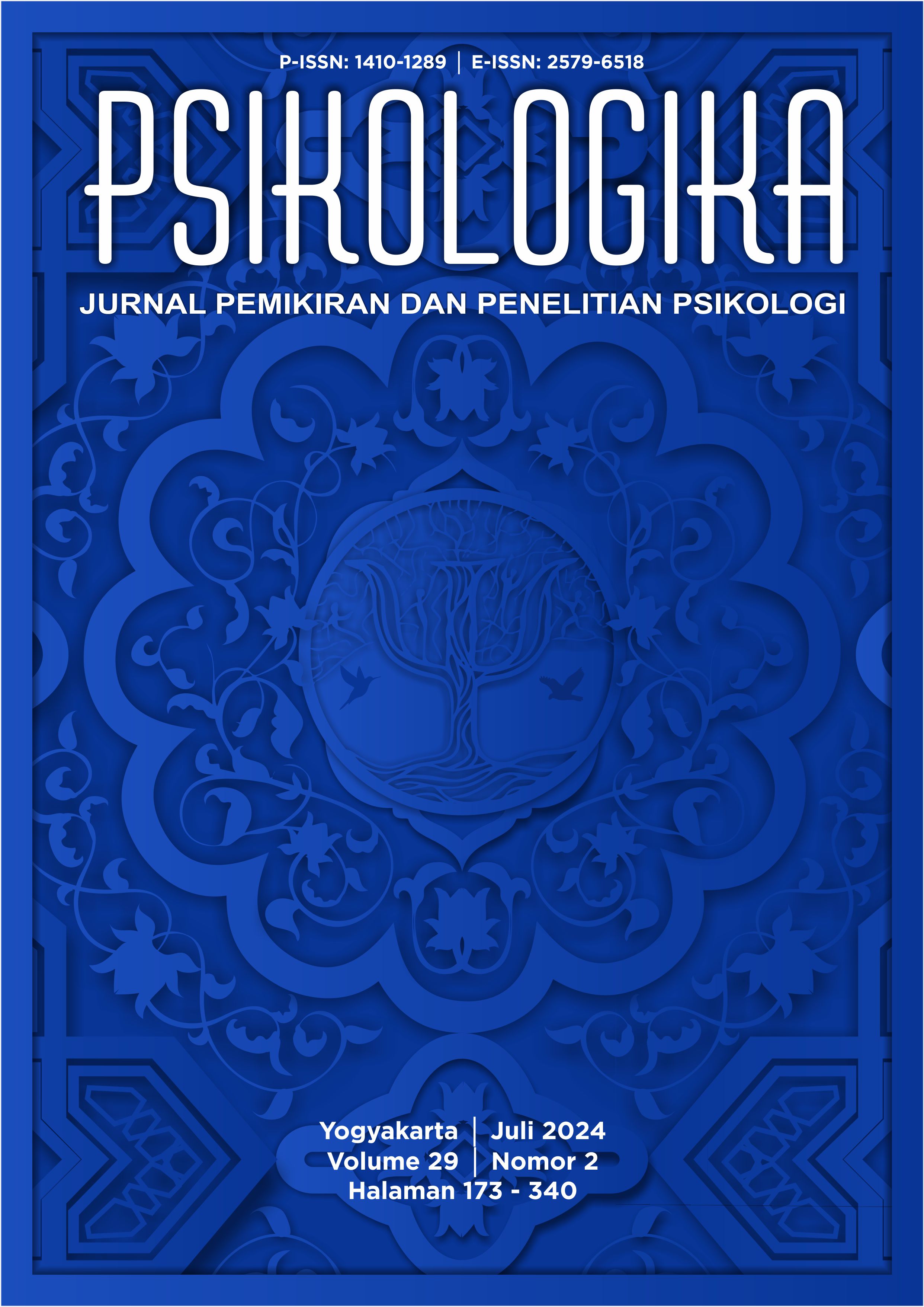Main Article Content
Abstract
Guilt is defined as part of the negative emotions that arises related to the conflict between work and family, especially in working mothers. Therefore, this study aimed to examine the consequences of guilt in working mothers due to role conflict or efforts to balance the roles. The Arksey and O’Malley (2005) framework was used as the study methodology which included searching four databases namely Scopus, WoS, Emerald, and Science Direct. A review of 10 out of 894 published articles identified three categories of consequences related to guilt such as (1) consequences for child care, (2) consequences for work, and (3) consequences for the
individual. The results from this review would provide a more comprehensive understanding of the consequences of guilt experienced by working mothers. These insights were valuable for practitioners, experts, and policymakers. Additionally, it could serve as a foundation for further and in-depth publications such as intervention or qualitative studies exploring the individual experiences of working mothers in greater detail.
Keywords
Article Details
Copyright (c) 2024 Yulia Hairina Hairina, Nurul Hartini

This work is licensed under a Creative Commons Attribution-ShareAlike 4.0 International License.
Authors who publish with this journal agree to the following terms:
- Authors retain copyright and grant the journal right of first publication with the work simultaneously licensed under a Creative Commons Attribution-ShareAlike 4.0 International License that allows others to share the work with an acknowledgment of the work's authorship and initial publication in this journal.
- Authors are able to enter into separate, additional contractual arrangements for the non-exclusive distribution of the journal's published version of the work (e.g., post it to an institutional repository or publish it in a book), with an acknowledgment of its initial publication in this journal.
- Authors are permitted and encouraged to post their work online (e.g., in institutional repositories or on their website) prior to and during the submission process, as it can lead to productive exchanges, as well as earlier and greater citation of published work (See The Effect of Open Access).




